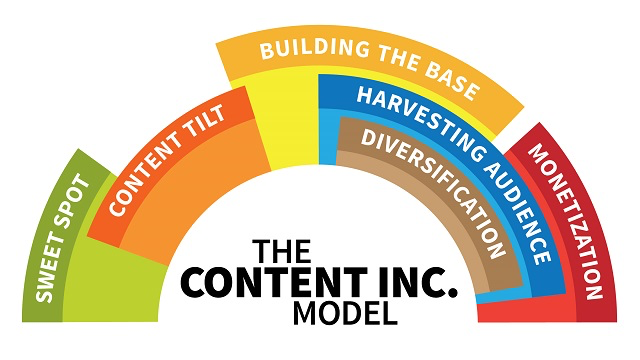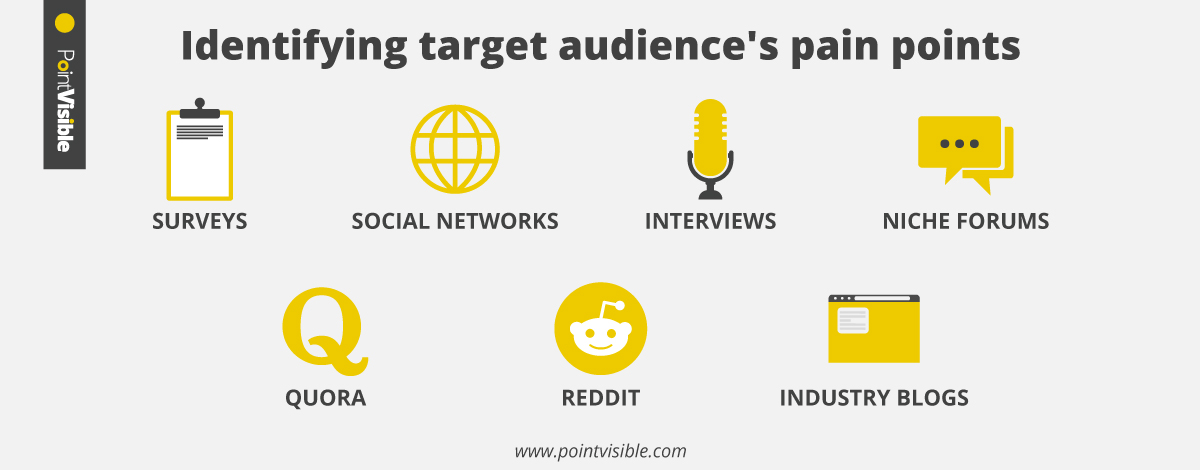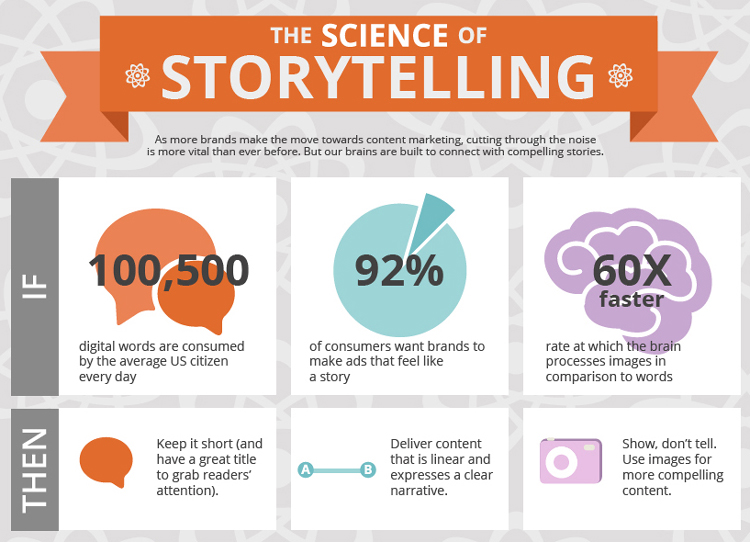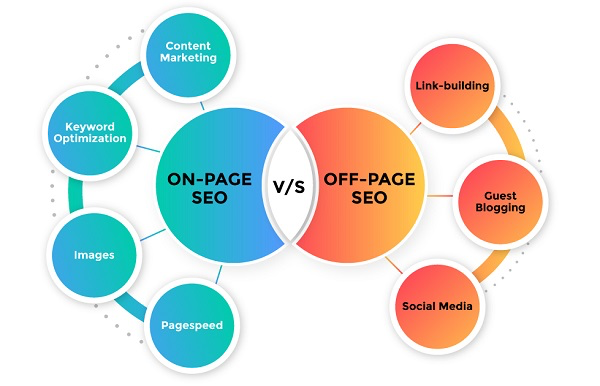Creating engaging content can be challenging, especially when working with limited resources and high expectations. That’s why it’s crucial to identify which content marketing mistakes to avoid when crafting a strategy.
A Content Marketing Institute study on B2B strategies found an interesting divide: only 40% of marketers have their strategies formally documented, 33% work with an undocumented approach, and 27% lack a strategy altogether. This statistic indicates a significant content marketing problem where marketers must pay more attention to planning and documentation.
Andriy Zapisotskyi, founder of GrowthMate, a SaaS link-building agency, is here. And I strongly believe that successful content marketing relies on clever strategies, not just hefty spending. In this guide, I'll explore practical tips to make your content marketing effective, no matter your team size or budget.
I’ll cover everything from identifying the most common mistakes to adopting tactics that give you the best bang for your buck. Let’s dive in and discover how to make your content not just exist but excel.
What Is Content Marketing?
Content marketing is an approach that strategically focuses on crafting and sharing content that is both relevant and important for potential customers. It stands apart from traditional marketing methods by focusing on material that resonates more deeply with a specific audience.
It also focuses on building long-term relationships with potential clients rather than generating quick sales. Its goal is to make your brand appear as a reliable and authoritative source in your field. By providing valuable and entertaining content tailored to the target audience, content marketing keeps consumers engaged and loyal in the long run.

Content marketing is about creating value beyond just selling a product or service – creating a conversation and a community around your brand.
Why Content Marketing Is Crucial For Your Business?
Content marketing provides numerous advantages crucial for growth and customer engagement. It's more than just advertising; it's about building a connection through shared stories and valuable information. Here's how:
- Driving Strategy: It forms the backbone of digital marketing campaigns, influencing SEO and PPC effectiveness. It's a strategic area where every company either it’s a CRO agency or a huge retailer, can provide expert guidance, leveraging content to optimize digital efforts.
- Educating Audiences: Content is vital to informing potential customers, guiding them to make informed decisions, and fostering trust.
Effective content marketing also involves various formats like blogs, podcasts, live streaming, and videos created with an AI video maker, catering to different preferences and enhancing engagement. This diversity in content types educates and entertains the audience, leading to better customer relationships and repeated sales. A prudent approach to content creation is to strategize content that can be seamlessly transferred to Marketing outsourcing. This entails considering the delegation of either the entire spectrum of marketing and advertising work or specific functions to external experts. Marketing outsourcing presents an opportunity for businesses to access additional expertise and operational efficiency, allowing a focused concentration on core business activities. In a similar way, businesses looking for written content of the highest quality can find essay writers through a platform for essay writing by academic writers, ensuring that their content creation needs are met with professionalism and expertise.
Moreover, content marketing includes social media engagement, allowing direct customer interaction. This engagement is crucial for understanding audience needs and refining marketing strategies.
In sum, content marketing is an indispensable part of your marketing strategy. It’s crucial in building trust, engaging customers, and driving sustainable growth in a marketplace that increasingly relies on online platforms.
Why Content Marketing Fails?
Content marketing can stumble when it's not in tune with what the audience wants. It's about understanding the audience’s needs and creating content that resonates.
But it's not just about the right content; how often and how well it's shared matters, too. Consistency is key. A sporadic approach can make the audience lose interest or doubt the brand's reliability. And if the content isn't optimized for search engines, it might go unnoticed, no matter how good.
Remembering content marketing isn't a standalone effort is also essential. It needs to be part of a more extensive digital strategy to make an impact. Recognizing these common slip-ups is the first step toward creating a content marketing strategy that engages and converts.
Top 7 Content Marketing Mistakes
While there are numerous strategies for success, I can assure you, that certain common pitfalls can undermine even the most well-intentioned marketing efforts. Here are the top seven biggest marketing mistakes that businesses often make:
1. Not Defining a Target Audience
One of the biggest marketing mistakes is not correctly defining a target audience. When businesses overlook this crucial step, their content frequently becomes too generic, failing to resonate with any specific group. A well-defined audience guides your content’s tone, style, and topics, ensuring it appeals directly to those you intend to reach.

Moreover, understanding your audience's preferences, pain points, and online behaviors enables you to tailor content that genuinely engages and satisfies their needs, ultimately leading to higher conversion rates. Without a specific audience in mind, your content will get lost in the vast sea of online content.
Here are actionable steps to help you better define your audience:
- Market Research. Dig deep into demographics, interests, and pain points using surveys and analytics. Remember, demographics will also change based on your location.
- Create Personas. Develop detailed audience personas to personalize your content.
- Segmentation. Divide your audience into groups based on shared characteristics.
- Competitor Analysis. Study competitors' audiences for insights.
- Feedback and Surveys. Engage with your current audience for direct input.
- Test and Iterate. Experiment and adapt based on results.
- Stay Updated. Keep an eye on evolving trends and shifting preferences.
By following these steps, you'll define your audience more precisely and create content that truly resonates with them. Understanding your audience is the compass guiding your content marketing journey.
2. Ignoring the Power of Storytelling
Neglecting storytelling in content marketing is a significant oversight these days. Storytelling is not just an artistic tool; it's a powerful means of connecting with your audience emotionally. Stories help humanize your brand and make complex information relatable and memorable. Using an AI humanizer can further refine automated content to ensure it feels natural, engaging, and truly connects with your audience.
For instance, a startup company that shares customer success stories or behind-the-scenes glimpses into its operations allows its audience to form a deeper, more personal connection with the brand. This approach contrasts sharply with presenting dry facts or overtly promotional content, often failing to engage readers.

To make the most of storytelling:
- Craft content with a clear narrative structure, including relatable characters and compelling plots.
- Share authentic stories that align with your brand's values and mission.
- Incorporate visuals like images and videos to enhance your storytelling.
- Maintain a consistent storytelling style to reinforce your brand's identity.
Compelling storytelling can transform mundane content into captivating narratives, fostering a stronger, more loyal community around your brand. When you overlook stories, content becomes impersonal and less impactful, leading to missed opportunities for building meaningful relationships with your audience. Using cute design templates can help bring those stories to life, adding warmth and personality that truly connects.
3. Not Being Patient
Creating a strong online presence and achieving noticeable results doesn't happen overnight. Some companies expect quick success and feel disheartened when it doesn't happen fast, but that's only possible for sketchy businesses like 123movies. Legal 123movies alternatives, such as Amazon Prime and Netflix, have taken years to become well-known worldwide. The same applies to every business with values out there.
Content marketing is a long-term strategy that requires consistent effort and patience. Rushing the process can lead to below-average quality content, hasty decisions, and missed opportunities for organic growth.
Instead, focus on incremental progress. Monitor key metrics, adapt your strategy based on insights, and stay committed to delivering value to your audience. Patience and persistence are crucial to content marketing success, so don't be disheartened by short-term setbacks.
4. Neglecting SEO
One of the most common and critical mistakes in content marketing I see quite often is that brands are not paying enough attention to SEO. Missing SEO puzzles can hamper your content's discoverability, essential for reaching the right audience. To avoid this, consider the following:
- Keyword Research. Begin by researching and integrating relevant keywords into your content. These keywords act as signposts for search engines and guide users to your content.
- Optimize Titles and Meta Descriptions. Craft compelling meta descriptions and titles that attract search engine attention and entice users to click through to your content.
- Technical Health. Ensure the technical health of your website by optimizing its structure, speed, and mobile-friendliness. This is crucial for better search rankings.
- Quality Content. Create valuable content that serves your audience and earns backlinks and authority over time. Quality content is the backbone of SEO success.
- Link Building Strategy. Consider how you can boost SEO for your website by aiming for mentions on high Domain Rating (DR) websites relevant to your niche. Off-page SEO is just as crucial as on-page efforts. If you're unsure about this, feel free to follow me on LinkedIn to learn more about link building or simply drop me a line with your question.
Itay Malinsky of Aloha.Digital emphasizes the synergy between content marketing and SEO, rather than viewing them in isolation. He states, "Content marketing and SEO are integral parts of a growth flywheel. By utilizing AI-powered predictive analytics, we can pinpoint content clusters that are most likely to drive significant growth for our clients. This helps us gain recognition from Google as an authority in certain subcategories. Now, we can further develop these clusters by introducing new articles that cover a wider array of keywords. As a result, we're able to expedite the growth of our client projects, often doubling their pace."

Just as Jira templates provide a structured approach to managing projects, an SEO-focused content strategy provides a structured approach to creating and optimizing content, ensuring it's relevant and easily discoverable.
These SEO practices are necessary for even the most well-written and informative content to be visible to potential readers. You'll miss out on organic traffic, which is often the most significant source of website visitors.
So, don't underestimate the power of SEO; it's the key to expanding your content's reach and driving growth for your business.
5. Not Being Consistent
Consistency is always key and extends beyond maintaining a regular posting schedule. It's the backbone of an effective Content Marketing Strategy, ensuring dependable quality and maintaining a consistent voice and style in your content.
When businesses post sporadically or let the quality of their content fluctuate, it can confuse and disengage their audience. On the other hand, regular, predictable content establishes a routine with your audience, fostering anticipation and loyalty.
Consistency also signals to search engines that your website is active and relevant, boosting your SEO performance. Moreover, your content’s consistent voice and style strengthen your brand identity, making your content instantly recognizable to your audience.
In contrast, inconsistent content strategies can lead to a fractured audience base and diminished brand recognition, ultimately undermining the long-term success of your content marketing efforts.
6. Not Posting on Multiple Platforms
Not integrating content marketing efforts across multiple channels is a significant oversight. By limiting content to a single channel, businesses miss the opportunity to broaden their reach and engage with audiences in different online spaces.
Multi-channel integration means adapting and sharing your content on social media, email newsletters, blogs, and video-sharing sites. This approach allows you to meet your audience where they are and reinforces your message through repeated exposure in different formats.
For instance, you can repurpose a well-received blog post into a series of social media posts, an infographic, or a video, each tailored to the specifics of its platform. By utilizing the skills of video production companies, you can transform your written content into engaging and visually appealing videos that resonate with your audience and expand your online reach. Ignoring this strategy leads to a narrow online presence and reduces your content’s potential impact, limiting both reach and engagement.
7. Not Measuring and Analyzing Performance
According to studies, in 2022, there was a 14% increase in marketers who track “content engagement.” Without adequately monitoring and updating key metrics, picking out what resonates with your audience and what doesn't becomes challenging.
Key metrics to focus on include engagement rates, website traffic, conversion rates, and social shares. These metrics provide invaluable insights into the effectiveness of your content strategy and reveal areas that require improvement.

Regularly reviewing, updating, and acting upon these insights is essential to keep your content marketing strategy dynamic and responsive to your audience's evolving preferences and behaviors. Neglecting this means operating in the dark and missing opportunities to maximize the impact of your content.
Summary
Effective content marketing is pivotal for business success, yet certain missteps can impede its impact. To enhance your content marketing efforts:
- Set Clear Goals: Define measurable objectives for guidance and focus.
- Consistent Voice and Style: Establish and maintain a unique brand voice for identity and trust.
- Understand Your Audience: Tailor content to meet your target audience’s needs and interests.
- Storytelling and SEO: Use compelling storytelling and adhere to SEO best practices for engagement and visibility.
Businesses can create more impactful and successful content marketing strategies by avoiding common mistakes like inconsistent messaging, neglecting audience understanding, and overlooking SEO. These practices will pave the way for deeper audience engagement and, of course, improved conversion rates.
FAQ
What makes a successful content marketing strategy?
A successful content marketing strategy includes clear goal-setting, audience understanding, consistent brand voice, engaging storytelling, and good SEO. It's about delivering valuable content that resonates with your audience and knowing how to promote it.
How often should I update my content marketing strategy?
Regularly review and update your strategy to reflect changes in market trends, audience preferences, and your business goals. Quarterly reviews are a good practice, but be flexible to adjust more frequently if needed.
Can content marketing work without a big budget?
Yes, content marketing can be effective even on a small budget. Focus on creating high-quality, relevant content and leveraging organic channels like SEO and social media. Creativity often trumps big budgets in content marketing.
Can you do content marketing without a blog?
It depends on your goal and resources. While blogs are a popular medium for content marketing, other options exist. Other channels include social media, podcasts, videos, email newsletters, webinars, and more. The key is to create and share valuable content that resonates with your target audience, regardless of the format or platform.







